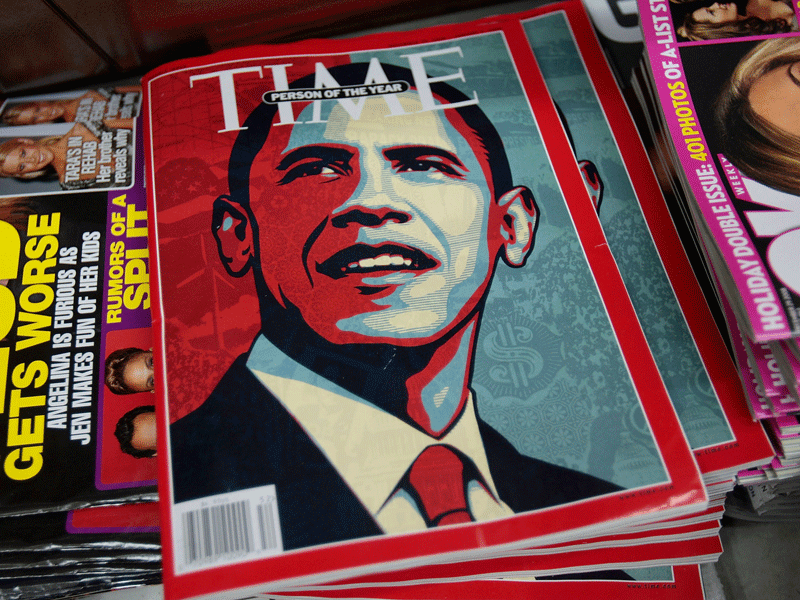Tech billionaire to buy Time for $190m
The acquisition of Time magazine represents Marc Benioff’s first foray into the media sphere after his extraordinary success with pioneering SaaS platform Salesforce.com

The iconic weekly news magazine was first published in 1923. Its new owners, the Benioffs, have stated that they will not have any involvement in its day-to-day operations
Time magazine is to be sold to Marc Benioff, co-founder of software platform Salesforce.com, and his wife Lynne in a $190m deal announced on September 16.
The couple have stated that they will not be operators of the business and will not have any involvement in its day-to-day management. Instead, they described themselves as “stewards of this historic and iconic brand”.
In a note sent to the publication’s staff on Sunday, Time editor Edward Felsenthal said: “From the first moments we sat down with Marc and Lynne to discuss Time’s future, we knew that this was not just a meeting of minds and business goals, it was a confluence of purpose.”
Felsenthal praised the Benioffs’ commitment to community and described them as “owners with a sterling record of innovation and of building collaborative, creative cultures”.
Benioff accrued his $6.7bn fortune primarily through the establishment and ownership of Salesforce.com, which he co-founded in 1999. The software firm, of which he remains chairman and co-CEO, is now worth an estimated $120bn. As the Benioffs are buying the magazine as individuals, Time will not have any association with the Salesforce.com business.
The publishing industry is under severe strain from falling print advertisement sales and digital market domination from tech firms such as Facebook
The proposed sale, which was first reported by the Wall Street Journal, is expected to close within 30 days. Time magazine is currently owned by media company Meredith. Its parent company, Time, was bought by the media conglomerate for $2.8bn in January this year.
Just two months later, in an attempt to shed costly publications that did not fit with its existing print offering, Meredith put four Time publications up for sale. Negotiations for the sale of the other three titles are ongoing.
Benioff is the latest in a line of tech entrepreneurs dipping their toes into media publication ownership. The trend was started in 2012 by Chris Hughes, co-founder of Facebook, when he purchased The New Republic for an estimated $2.1bn. However, Hughes sold the publication in 2016 after a disappointing tenure at the helm, during which time site traffic declined by nearly 40 percent.
Jeff Bezos has had more success with his ownership of The Washington Post, which he acquired in 2013 for $250m. The paper has been profitable for the past two years, and in July 2017, hit a record 74.1 million monthly readers.
Laurene Powell Jobs, philanthropist and widow of Steve Jobs, followed in Bezos’ footsteps in 2017 when she acquired a majority stake in The Atlantic through her organisation Emerson Collective. In February this year, the publication announced it would be taking on “as many as 100 new staffers” over the following 12 months, with 50 percent of those hires on the editorial side.
As the tech sector experiments with media ownership, the publishing stalwarts themselves are taking a step back. Condé Nast has put three titles up for sale amid revelations that the legacy publisher lost $120m last year, while the New York Daily News announced in July that it would be cutting 50 percent of its newsroom staff, citing a desire to focus more on the digital side of the business.
The publishing industry is under severe strain from falling print advertisement sales and digital market domination from tech firms such as Facebook and Google. According to a report by the Pew Research Institute, US print advertising revenue plummeted from $65bn in 2000, to under $19bn in 2016.
Time is certainly not exempt from the industry’s financial woes – the company reported net debt of $2.7bn in June this year.
This latest acquisition suggests that weary media owners have adopted an ‘if you can’t beat them, join them’ attitude. By choosing to hand over the reins to tech entrepreneurs, they are effectively reducing their digital competition.
But the incoming leadership will not have an easy ride. The tech sector as a whole has severe trust issues to overcome, due to a long line of recent scandals involving data privacy and erroneous stories appearing on platforms such as Facebook.
The challenge for new tech owners, including the Benioffs, will be to increase profitability and improve digital offerings while maintaining journalistic integrity.













